
The memory of the movement in the French curriculum Hassan Al Balawi

- Europe and Arabs
- Tuesday , 1 November 2022 22:32 PM GMT
The memory of the movement in the French curriculum
Hassan Al Balawi
The Human Research House, headed by the friendly Lebanese researcher Jihan Sfeir and affiliated with the Free University of Brussels, organized a scientific symposium entitled “The Memory of the Movement” based on the work of the French researcher Aude Senol. .
What is meant by the Harkis are the approximately 150,000 Algerians who served in the French army during the French occupation of Algeria - whom Algeria considers traitors who sided with the French occupation army against the liberation revolution in their country from 1954 to 1962.
After the independence of Algeria, France received a large part of them and placed them in camps semi-isolated from French society in various places outside French cities, and their number and their families are currently in France about half a million people. and Algeria.
The researcher worked on analyzing the complex memory resulting from the Algerian war, and in particular the memory of the Harkis, by studying how the French study curricula dealt with the issue of the Algerian war in general and the file of the Harkis in particular. It was mentioned in the French curricula in 2018, at a time when the topic of “Algeria War” (which is the official French term for Algeria’s 132-year occupation of France instead of the term “Algeria events” which was prevalent) was addressed for the first time in the school curricula. 2012.
She added that by returning to the same curricula, I found an entire study section entitled "Society's Relationship with its Past", which deals with only two issues from this past, the first dealing with the acts of genocide that the Jews were subjected to in Europe during the World War, and the second related to the issue of Algeria.
The speaker reviews what she calls the “politicization” of the public school in France, which began in the eighties of the last century, the period during which the socialist left ascended to power in France, and which gradually worked to raise the issue of memory and the painful references it brings to the past, in order to reach To reconcile with this past with all its complications affecting the present.
This politicization of the French school reached its climax when, in February 2005, the French parliament approved, by a right-wing majority, a law that praises the French curricula for the “positive role of the French presence abroad,” that is, colonialism in countries and regions that have been occupied in the past two centuries.
This law aroused widespread controversy in all political, cultural and media circles in France, which demanded the abolition of this law. This law also aroused widespread criticism in the countries of the Maghreb at the level of governments and cultural and media elites, especially in Algeria, whose government linked the signing of a friendship treaty with Paris to retracting the agreement. That law, which was described as legitimizing occupation and colonialism and justifying their crimes, was called by the late Algerian President Abdelaziz Bouteflika as the "law of shame."
The late French President Jacques Chirac at the time worked to mitigate the controversy by declaring that "history is not written by the enactment of laws, but that task belongs to historians." Chirac then formed a committee to determine the parliament's role in the areas of memory and history, but this message did not reduce the uproar that this law aroused at the level of the countries of the Maghreb. administratively. On this basis, the contested amendment was rescinded by law.
According to researcher Aude Senol, since the early nineties, associations of the sons and grandsons of Algerian activists have been formed in France, demanding the French state not only to provide material compensation for what happened to their parents and grandparents because of their loyalty to France and their assistance during its occupation of Algeria, but also to find monuments and a museum, an expression in which The French state expressed its gratitude to their fathers and grandfathers, and these calls resonated with many French official circles, including the presidents of republics and parliaments, which was expressed in the February 2005 law, which sparked a wave of widespread anger in the countries of the Maghreb, where it stated in one of its articles “The nation expresses its gratitude For the women and men who took part in the mission accomplished by France in its former provinces of Algeria, Morocco, Tunisia and Indochina, and in all the countries under French sovereignty, (the French nation) recognizes the pain and sacrifices made by the deportees, former members of the supplementary formations and the assimilated, the missing and the civilian victims And the military during the events related to the independence of these former provinces and territories, and expresses to them and their families in good faith A public story about what we know.”
Three French presidents, from the right and the left, took symbolic initiatives to “re-consider” the movement, including the creation of a national day in France on September 25, 2018 to honor the movement in France, where the state announced measures in their favor, including allocating forty million euros over four years to help second-generation activists who still face social difficulties in integrating.
These official French initiatives have increased the depth of the dispute with Algeria, which sees that these Harkis are simply nothing but traitors who served the interest of the French colonizer against the interest of their country.
The researcher mentioned that the French state, as part of its endeavor to establish a dialogue between multiple memories that arose from the “Algeria War,” which are contradictory and clashing memories, has opened the way for the National Agency for Ancient Fighters, in cooperation with the Ministry of Armies, to allow students in French schools to only You will listen to four novels in the Algerian case, the first story of people who fought in the French army that was occupying, the second story of those who are called “the black-footed people” (they are the French and European settlers who were brought by France to live in Algeria and who were used by France to narrow them down on the Algerian people), the novel The third by the Harkis and the last novel by the militants of the Algerian National Liberation Front, which fought against French colonialism.
The researcher touches on the new data arising from the Algerian issue, which is still wide open even after 60 years of the achievement of Algerian national independence, is the establishment of the "National Association of Black-Footed Anti-Colonialists" who are the descendants of the French and European settlers who contributed to the colonization of Algeria, and who want to The events of a break with the heritage of their ancestors and they reject colonialism, and they are from a generation brought up on values that reject colonialism.
The second novelty is the involvement of many descendants of the Harkis in social movements in anti-racist France with the French who reject racism and xenophobia and with the descendants of immigrants from the Maghreb, including the Algerians, who introduced France starting in the fifties, which generates new dynamics in relations between ancestors belonging to For the same homeland, regardless of the contradictory history of the ancestors, and these new equations resulted in many cases of intermarriage and the visit of many of the descendants of the Harkis to their mother country Algeria and their settlement there.
There are also groups of Harkis’ descendants who want to break with the past of their ancestors and refuse to be defined as Harkis or even as French, but rather as Muslims.
The third new, with the rise of the extreme right in France, which achieved unprecedented results in the French presidential elections (May 2022) when the extreme right-wing candidate Marine Le Pen (she is the daughter of the founder of the French National Front, i.e. the extreme right, Jean-Marie Le Pen, who was himself an officer in the ranks) won The French army occupied Algeria) 42 percent in the second round of the elections in
Confronting Emmanuel Macron, the phenomenon of glorifying “French Algeria” has returned, which takes the name Nostalgeria, meaning nostalgia for French Algeria, and an attempt to reconsider the phenomenon of OAS, i.e. the secret army organization, which was formed by officers from the French army in Algeria, who rejected General Charles de Gaulle’s decision to open dialogue with the National Liberation Front. Algerian in preparation for the exit of France from the nest of Algerian hornets, but even tried to kill him.
What the industrious French researcher presented in her symposium shows that the Algerian file is still thorny if not burning, and many of the main issues and challenges in France stem from it, whether it is related to the Arabic language, the view of the Islamic religion, racism, and many other issues, including the Palestinian issue Which deserves to be returned to, in another article, through the approach with the Algerian issue, as mentioned in this valuable symposium.




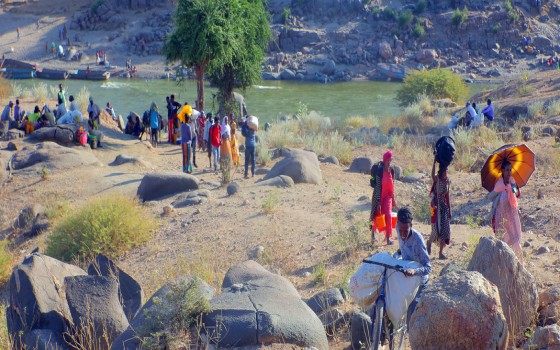

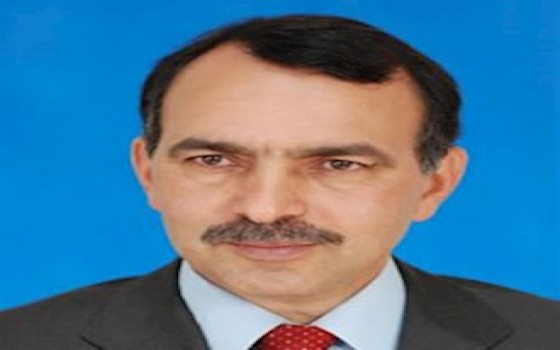
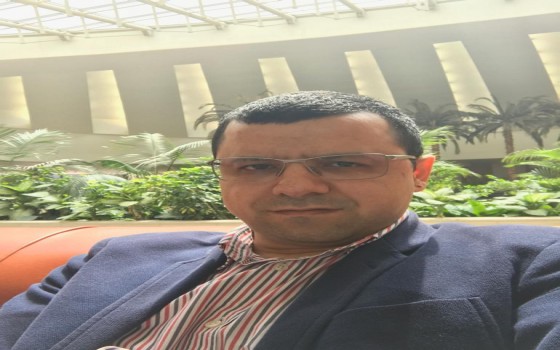


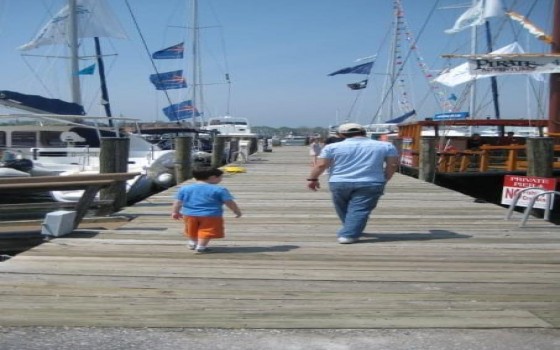
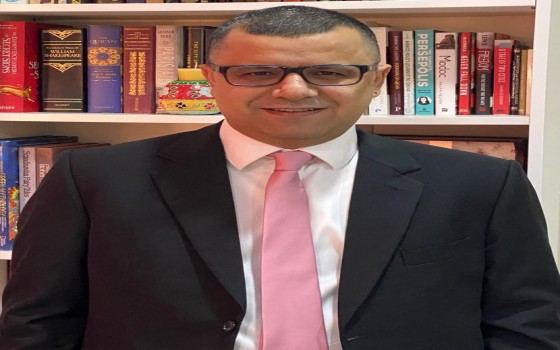
No Comments Found